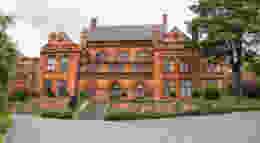
Why we should teach contentious historical subjects in school
Recent intense debate on the Israel-Palestine conflict has shown why we must not shy away from contentious subject areas in schools, writes Michael Davies.
If you've kept an eye of the education pages in the media, you'll have noticed that the latest outbreak of violence in the Israel and Palestine has caused conflict in British schools. Muslim students have been demonstrating their support for Palestine in school and their often non-Muslim teachers have struggled to find the right way to respond. One headteacher got it wrong when he told his students that the Palestinian flag could give offence because it was a symbol of aggression and more generally teachers tell me they feel ''exposed'' in having to deal with pupils who appear to be more knowledgeable about this conflict than they are.
And it's not just schools who are having a hard time navigating their way through the contested history of Israel and Palestine. Pearson, the international educational publisher, was forced to withdraw a GCSE textbook after accusations of anti-Israeli bias. Then, when it republished the book earlier this year with hundreds of changes, it was forced to withdraw that edition too after complaints of anti-Palestinian bias.
In some ways this has been a problem brewing for some time. In 2007 the Government commissioned the Historical Association to investigate how controversial and emotive history was taught in U.K. classrooms. The report warned that teachers were increasingly wary of tackling those sorts of topics, and the evidence available suggests that that trend has only continued. For example, each year there only 2000 students from a cohort of about 250,000 who study the history of Israel and Palestine – that's not because students aren't interested and it's not because the topic itself isn't both fascinating and relevant, it's because teachers don't want to expose themselves to criticisms of bias in the classroom. When I wrote an article for the Guardian about a school trip I had taken to Israel and the West Bank there were hundreds of mainly hostile comments and my school received letters saying I was unfit to be a teacher. No wonder teachers chose the Nazis and Henry VIII – we can agree who the villains were.
Since 2007 three pernicious influences affecting public debate have made life harder for teachers. The first is that their pupils may receive their news about the world from very partisan sources. Second, there is less respect for the traditional sources of authoritative information like the BBC, or what in the not-so-distant past were known as broadsheet newspapers. Third, there is an intolerance for those who disagree. The right-wing try to portray this phenomenon as a left-wing plot to silence conservative views by no-platforming at universities, and the left-wing try to portray this as a right-wing plot to silence criticism of capitalism and the legacy of the British empire in state funded schools.
The result is polarisation, a lack of exposure to ideas or narratives that are uncomfortable to the listener, a propensity to believe in conspiracy theories and a thin-skinned willingness to believe that disagreement is actually a form of disrespect.
So, all of the above make the role of schools and teachers more important than ever. And while teaching students controversial topics is a challenge it's also a huge opportunity. The key is for the teacher to focus on teaching his or her students not what to think, but how to think. The student needs to learn for themselves that that there isn't just one correct narrative, and that people who hold to other narratives do so for their own good reasons, not because they are intractably hostile.
Of course this isn't always easy and there may be opposition from parents and the wider community to the introduction of a new point of view; when we brought a big Jewish school and an Islamic academy in Preston together to debate Israel and Palestine, both schools faced criticism from their own community who didn't understand the programme and saw it as an undermining of religious identity.
However, there is research to assuage these concerns. We survey students before and after completing the teaching module and a typical response is 'I haven't changed my mind about my support for the (Israelis or Palestinians) but I do now view the other side differently – I get where they are coming from'. In fact, there is Israeli research that shows studying historical narratives critical of one's own historical identity serves to both strengthen that sense of identity and also increases tolerance of others.
There are a few basic rules to ensure that the introduction of controversial history into the classroom is successful:
1. Let both sides tell their history in their own words. Don't try to take a middle ground; it often doesn't exist, and you will find yourself put in the uncomfortable position of trying to umpire the truth.
2. Make the students explore the narratives from the source evidence itself and over time teach them how to be more critical and discriminating about how much credence they give to different pieces of evidence. Not all evidence weighs the same.
3. Have a debate each week so that over a term they can get used to arguing from both points of view and make sure that everyone has to speak. This both builds their confidence in making evidence-based arguments and gives a voice too students who may talk rarely or not at all in class. And for some the experience of being listened to carefully and taken seriously is a novel and invigorating experience
So, while there are risks in introducing challenging historical narratives to a sceptical or outright hostile audience they are risks worth taking because the rewards are so huge. How are we going to produce future voters prepared to play their part in a healthy pluralistic democracy if we don't start the process in the classroom?









